I come here just because I have no other choice. I'm appalled by the things I have watched here. The treatment really is a joke. Some nurses try to do something good but the rest of them don't even try.
About Ephraim McDowell Regional Medical Center
Ephraim McDowell Regional Medical Center is a full-service hospital based in Danville, Kentucky. As part of their comprehensive offerings, they have inpatient and outpatient behavioral health services and substance use treatment. They also have an intensive care unit where they can provide emergency psychiatric stabilization services.
The Ephraim McDowell Center can treat children ages five and up as well as adults and older adults. They have 20 inpatient beds for adults and senior adults.
Thorough Treatment for Dual Diagnosis in Central Kentucky
The substance use treatment approach here includes individual and group therapy sessions. Your therapist will also consider underlying mental health conditions that lead to or exacerbate substance use behaviors. They can provide diagnoses for co-occurring mental health conditions or simply help you learn techniques for managing your actions and thought patterns.
Integrating mental health with your substance use treatment is one of the best ways to build toward lifelong sobriety because it looks at the behavior from multiple angles and creates solutions for each one.
Activity Therapy for Stress Management
A unique type of therapy they offer at the Ephraim McDowell hospital is activity therapy. This uses art and crafts, music, exercise, and games or recreational activities to help you explore your emotions and cope with stress.
Age-Specific Care for Senior Adults
Something great about Ephraim McDowell is that they’ve created a short-term program specifically for older adults who are facing behavioral health difficulties. This can include substance use or things like depression, dementia, paranoia or anxiety.
The goals of the program are to teach older adults coping mechanisms for whatever difficulty they’re facing and to teach them as quickly as possible. The care team prioritizes dignity at each step of the process.
Facility Overview
Latest Reviews
Rehab Score
Gallery
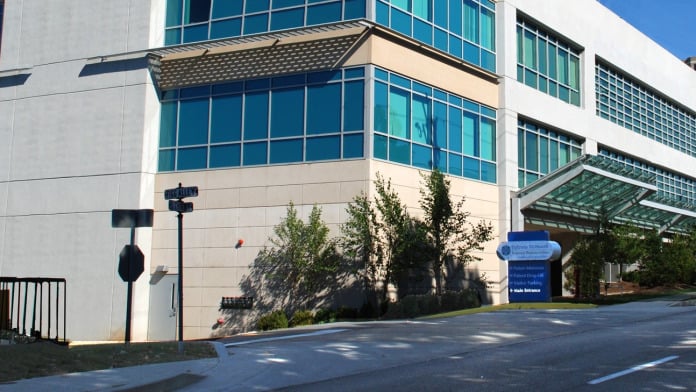
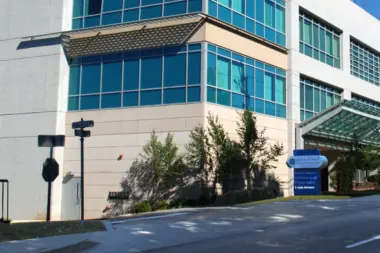
Accepted Insurance
Other Forms of Payment
Medicaid is a state based program that helps lower-income individuals and families pay for healthcare. Medicaid covers addiction treatment so those enrolled can use their coverage to pay for rehab. When a program accepts Medicaid the client often pays very little or nothing out of their own pocket.
Private insurance refers to any kind of healthcare coverage that isn't from the state or federal government. This includes individual and family plans offered by an employer or purchased from the Insurance Marketplace. Every plan will have different requirements and out of pocket costs so be sure to get the full details before you start treatment.
Self-pay involves paying for treatment out of your own pocket. You can use savings or credit, get a personal loan, or receive help from family and friends to fund your treatment. If you don't have insurance or your insurance plan doesn't cover a specific program, self-pay can help ensure you still get the care you need.
Financial aid can take many forms. Centers may have grants or scholarships available to clients who meet eligibility requirements. Programs that receive SAMHSA grants may have financial aid available for those who need treatment as well. Grants and scholarships can help you pai for treatment without having to repay.
Medicare is a federal program that provides health insurance for those 65 and older. It also serves people under 65 with chronic and disabling health challenges. To use Medicare for addiction treatment you need to find a program that accepts Medicare and is in network with your plan. Out of pocket costs and preauthorization requirements vary, so always check with your provider.
Addiction Treatments
Levels of Care
Residential treatment programs are those that offer housing and meals in addition to substance abuse treatment. Rehab facilities that offer residential treatment allow patients to focus solely on recovery, in an environment totally separate from their lives. Some rehab centers specialize in short-term residential treatment (a few days to a week or two), while others solely provide treatment on a long-term basis (several weeks to months). Some offer both, and tailor treatment to the patient's individual requirements.
Treatments
Many of those suffering from addiction also suffer from mental or emotional illnesses like schizophrenia, bipolar disorder, depression, or anxiety disorders. Rehab and other substance abuse facilities treating those with a dual diagnosis or co-occurring disorder administer psychiatric treatment to address the person's mental health issue in addition to drug and alcohol rehabilitation.
Mental health rehabs focus on helping individuals recover from mental illnesses like bipolar disorder, clinical depression, anxiety disorders, schizophrenia, and more. Mental health professionals at these facilities are trained to understand and treat mental health issues, both in individual and group settings.
Programs
Adult rehab programs include therapies tailored to each client's specific needs, goals, and recovery progress. They are tailored to the specific challenges adult clients may face, including family and work pressures and commitments. From inpatient and residential treatment to various levels of outpatient services, there are many options available. Some facilities also help adults work through co-occurring conditions, like anxiety, that can accompany addiction.
Young adulthood can be an exciting, yet difficult, time of transition. Individuals in their late teens to mid-20s face unique stressors related to school, jobs, families, and social circles, which can lead to a rise in substance use. Rehab centers with dedicated young adult programs will include activities and amenities that cater to this age group, with an emphasis on specialized counseling, peer socialization, and ongoing aftercare.
Clinical Services
Experiential therapy is a form of therapy in which clients are encouraged to surface and work through subconscious issues by engaging in real-time experiences. Experiential therapy departs from traditional talk therapy by involving the body, and having clients engage in activities, movements, and physical and emotional expression. This can involve role-play or using props (which can include other people). Experiential therapy can help people process trauma, memories, and emotion quickly, deeply, and in a lasting fashion, leading to substantial and impactful healing.
Group therapy is any therapeutic work that happens in a group (not one-on-one). There are a number of different group therapy modalities, including support groups, experiential therapy, psycho-education, and more. Group therapy involves treatment as well as processing interaction between group members.
In individual therapy, a patient meets one-on-one with a trained psychologist or counselor. Therapy is a pivotal part of effective substance abuse treatment, as it often covers root causes of addiction, including challenges faced by the patient in their social, family, and work/school life.
Nicotine Replacement Therapy (NRT) is a way of getting nicotine into the bloodstream without smoking. It uses products that supply low doses of nicotine to help people stop smoking. The goal of therapy is to cut down on cravings for nicotine and ease the symptoms of nicotine withdrawal.
Nutrition therapy, aka medical nutrition therapy (MNT), is a way of treating physical, emotional, and medical conditions through diet. Specific dietary plans are designed by professional nutritionists or registered dietitians, and patients follow them in order to positively affect their physical and mental health.
Staff

Daniel E. McKay
President & Chief Executive Officer

Amanda Kinman
Chief Financial Officer

Tammy Meade Ensslin, JD
Chief Legal Officer and General Counsel
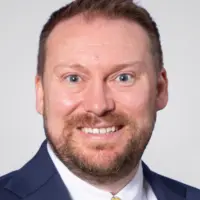
Nicholas Spoonmore
Vice President of Strategic Initiatives
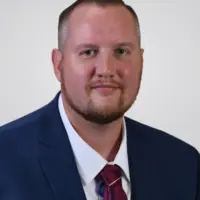
Jason Dean
Vice President of Clinical Effectiveness
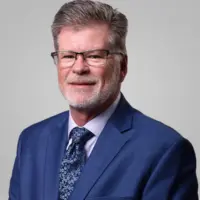
Rick Jansen, RN, BSN, MBA
Chief Nursing OfficerChief Nursing Officer
Contact Information
217 South 3Rd street
Danville, KY 40422













